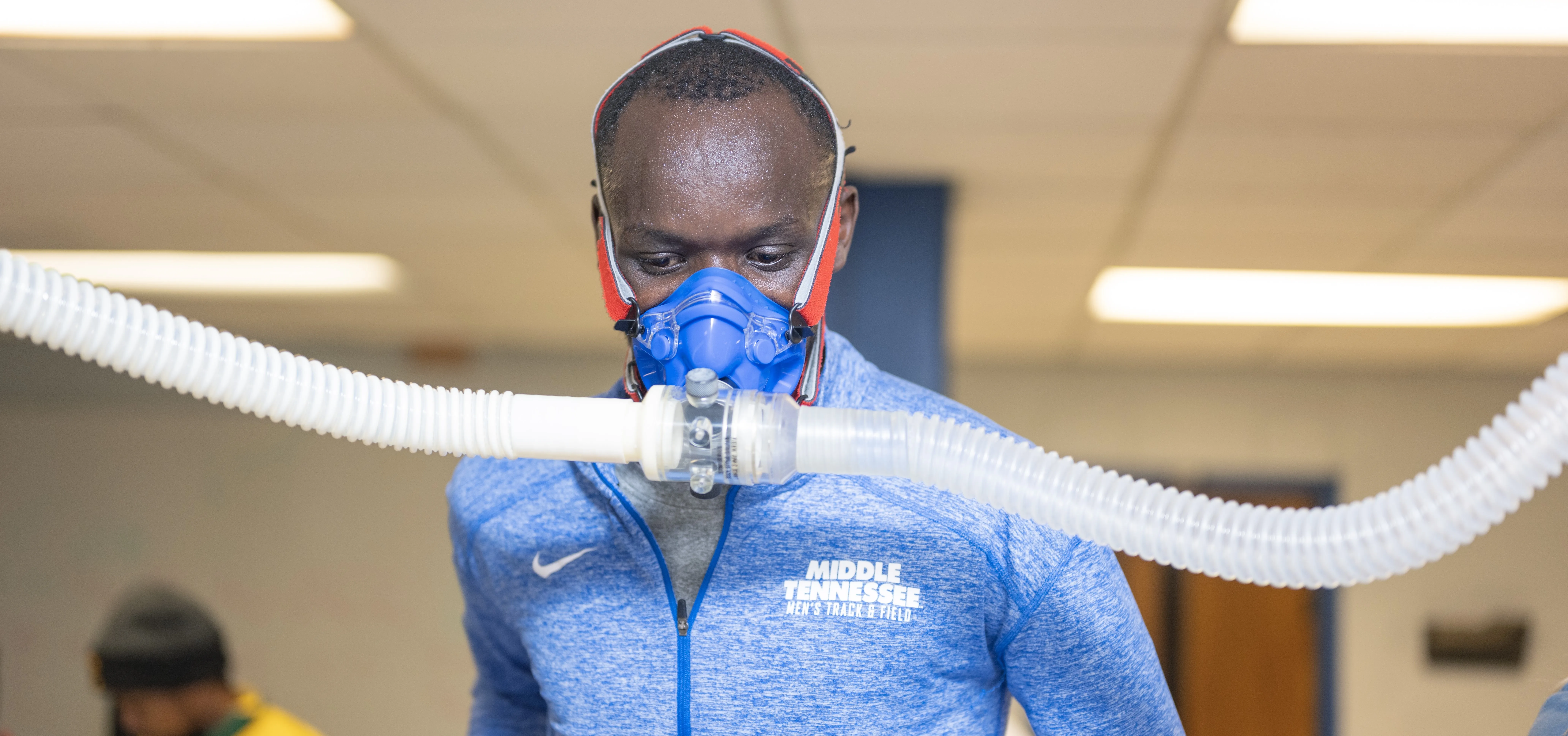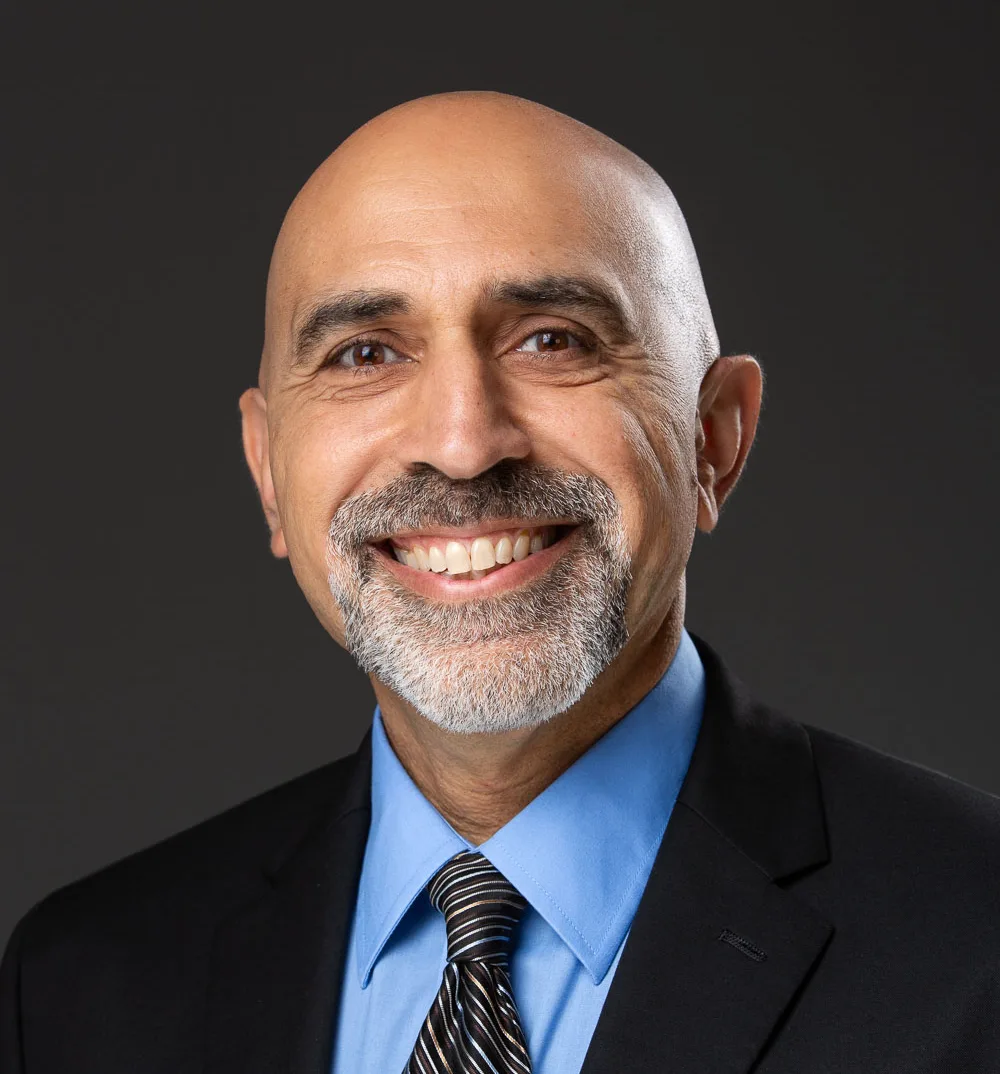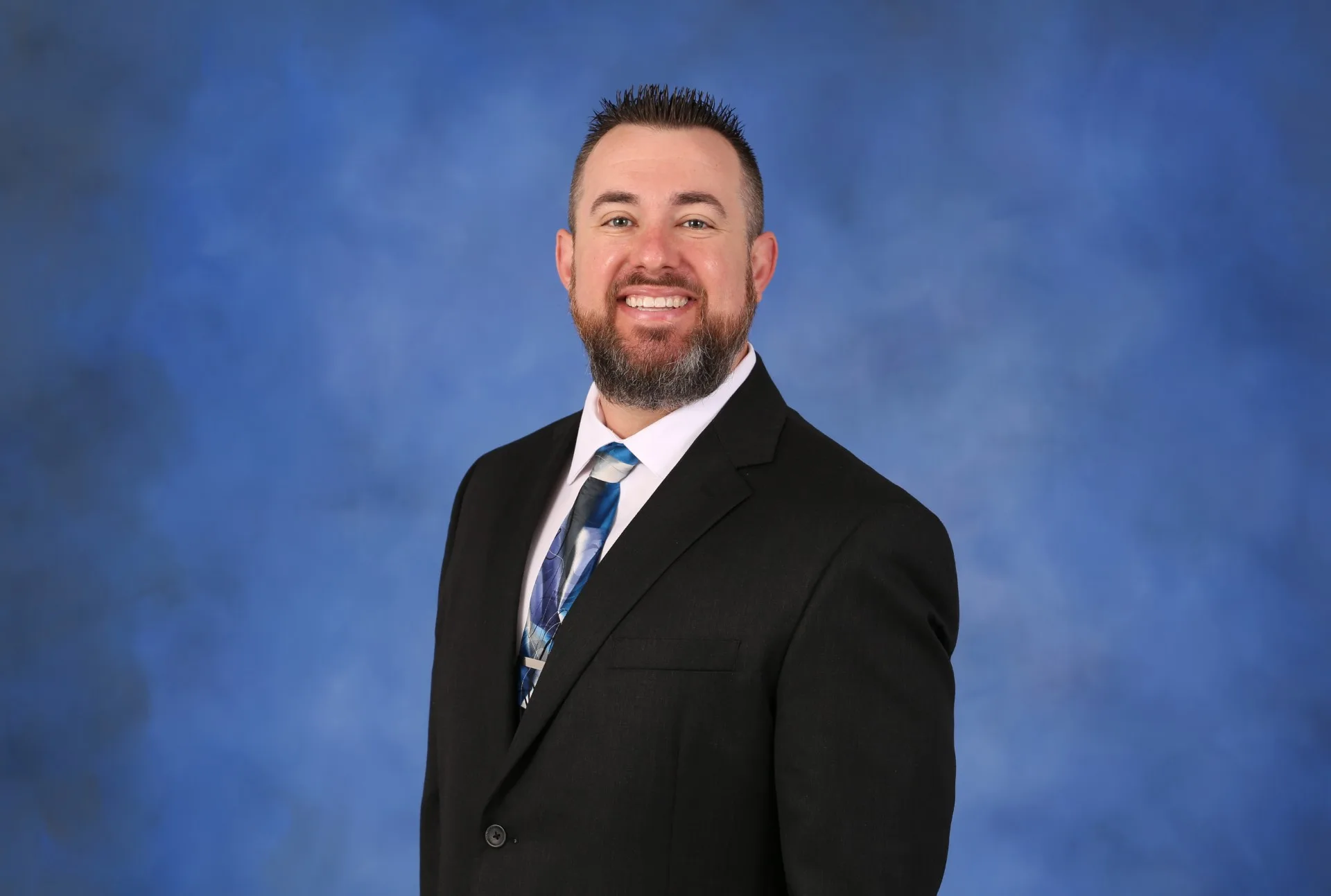
Human Performance
Designed for students with interests in advanced studies on human physiology.
Human Performance, Exercise Physiology Concentration, Ph.D.
The Exercise Physiology concentration within the Ph.D. in Human Performance examines both acute and chronic responses to physical activity and exercise. The curriculum encompasses critical areas such as cardiovascular physiology, the environmental impact on physical performance, muscle physiology, and the practical aspects of applied human work physiology. A cornerstone of this immersive learning experience is the Human Performance Laboratory. Here, students are provided with unparalleled opportunities to collaborate with faculty in research and experience hands-on applications in the field of exercise physiology, establishing a solid foundation for the dissertation.
Designed to accommodate a variety of student needs, the program allows full-time students to complete their degree within three to four years. Meanwhile, professionals already working in the field have the option to enroll on a part-time basis, completing their studies on a more flexible timeline. Many students receive graduate assistantships.
News Briefs

Rawsam Alasmar's profound shift from printing to kinesiology
Rawsam Alasmar's career journey is marked by a profound shift from a successful 23-year tenure in the printing industry to a passionate pursuit of fitness and allied health. With over 9 years of experience as a corrective exercise therapy specialist, he decided to further his education, earning a Ph.D. in Human Performance with a specialization in exercise science from MTSU in 2021. During his doctoral studies, Dr. Alasmar conducted pioneering research using the "PENDL," a newly developed suspension apparatus, to explore its impact on reducing back pain and enhancing various fitness aspects. His exceptional academic foundation, research expertise, and faculty guidance at MTSU paved the way for his selection as the inaugural Post-doctoral Fellow in Performing Arts Health, Science, and Education at Johns Hopkins University. In this role, he applied his profound knowledge of exercise science to research and collaborated on curriculum development, striving to elevate the performance of individuals in the performing arts. Dr. Alasmar firmly believes that performing artists deserve the same level of care and attention as elite athletes in the sports industry. Currently, Dr. Alasmar serves as an Assistant Professor in the Kinesiology Department at Missouri Southern State University and holds the position of Exercise Science Program Coordinator.

Dr. Ryan Thomas Conners
Dr. Ryan Thomas Conners, ATC, FACSM, currently holds the position of Associate Professor and Department Chair of Kinesiology within the College of Education at the University of Alabama in Huntsville. Dr. Conners earned his Ph.D. in Human Performance, specializing in Exercise Physiology, from Middle Tennessee State University (MTSU). His doctoral research at MTSU focused on the benefits of Underwater Treadmill Training for adults with Type II Diabetes.
With extensive experience and expertise in health and human performance, Dr. Conners has made significant contributions to exercise science through various innovative research projects and scholarly publications. His recent research includes studies on transformational leadership among NCAA collegiate athletes and the impact of aquatic walking on individuals with knee osteoarthritis. His work has been featured in respected journals such as the Journal of Sport Behavior, European Journal of Adapted Physical Activity, Journal of Strength and Conditioning Research, Clinical Diabetes, and the International Journal of Aquatic Research and Education.
Dr. Conners credits his research success to the guidance of his mentor, Dr. Don Morgan, during his time at MTSU. Recognizing his dedication to fostering academic growth, Dr. Conners was recently honored with the Undergraduate Research and Creative Activity Mentor Award at the University of Alabama in Huntsville.
News Briefs
Rawsam Alasmar's profound shift from printing to kinesiology

Rawsam Alasmar's career journey is marked by a profound shift from a successful 23-year tenure in the printing industry to a passionate pursuit of fitness and allied health. With over 9 years of experience as a corrective exercise therapy specialist, he decided to further his education, earning a Ph.D. in Human Performance with a specialization in exercise science from MTSU in 2021. During his doctoral studies, Dr. Alasmar conducted pioneering research using the "PENDL," a newly developed suspension apparatus, to explore its impact on reducing back pain and enhancing various fitness aspects. His exceptional academic foundation, research expertise, and faculty guidance at MTSU paved the way for his selection as the inaugural Post-doctoral Fellow in Performing Arts Health, Science, and Education at Johns Hopkins University. In this role, he applied his profound knowledge of exercise science to research and collaborated on curriculum development, striving to elevate the performance of individuals in the performing arts. Dr. Alasmar firmly believes that performing artists deserve the same level of care and attention as elite athletes in the sports industry. Currently, Dr. Alasmar serves as an Assistant Professor in the Kinesiology Department at Missouri Southern State University and holds the position of Exercise Science Program Coordinator.
Dr. Ryan Thomas Conners

Dr. Ryan Thomas Conners, ATC, FACSM, currently holds the position of Associate Professor and Department Chair of Kinesiology within the College of Education at the University of Alabama in Huntsville. Dr. Conners earned his Ph.D. in Human Performance, specializing in Exercise Physiology, from Middle Tennessee State University (MTSU). His doctoral research at MTSU focused on the benefits of Underwater Treadmill Training for adults with Type II Diabetes.
With extensive experience and expertise in health and human performance, Dr. Conners has made significant contributions to exercise science through various innovative research projects and scholarly publications. His recent research includes studies on transformational leadership among NCAA collegiate athletes and the impact of aquatic walking on individuals with knee osteoarthritis. His work has been featured in respected journals such as the Journal of Sport Behavior, European Journal of Adapted Physical Activity, Journal of Strength and Conditioning Research, Clinical Diabetes, and the International Journal of Aquatic Research and Education.
Dr. Conners credits his research success to the guidance of his mentor, Dr. Don Morgan, during his time at MTSU. Recognizing his dedication to fostering academic growth, Dr. Conners was recently honored with the Undergraduate Research and Creative Activity Mentor Award at the University of Alabama in Huntsville.
Related Media

Human Performance, Exercise Physiology Concentration, Ph.D.
The Ph.D. in Human Performance is offered for the purpose of developing doctoral level expertise in research (both applied and theoretical) and as preparation for teaching at the collegiate level. Some positions currently held by alumni from the doctoral program include:
- Athletic trainer
- Behavioral sleep medicine specialist
- College athletics head coach
- Physical education teacher
- Strength and conditioning coach
- University professor
Employers of MTSU alumni include
- Bowling Green State University
- BYU - Hawaii
- Columbus State University
- Cumberland University
- East Tennessee State University
- Endicott College, School of Sport Science and Fitness Studies
- Gustavus Adolphus College
- Kansas State University
- Lipscomb University
- Mesa State University
- Montana State Universit - Northern
- National Basketball Association/Brooklyn Nets
- Roanoke College
- Syracuse University
- Taylor University
- Tennessee Technological University
- Texas Tech University
- Trinity Elementary School
- Troy University
- University of Tennessee - Martin
- University of Wisconsin
- University of Wisconsin - Eau Claire
- Vanderbilt University Medical Center
- West Virginia University
- Western Kentucky University

MTSU’s Career Development Center
MTSU offers a comprehensive Career Development Center that serves students throughout the full student experience and beyond. They collaborate with faculty and staff to equip students with the tools to be marketable to the world of work and continuing education.
Students can schedule an appointment or check online resources and job boards at mtsu.edu/career.
Students can find current internship opportunities by talking to faculty and visiting the University job and internship board called Handshake.
Wondering what you can do with your major? Check out our What Can I Do with A Major In guides.



Additional Information

CONTACT US










